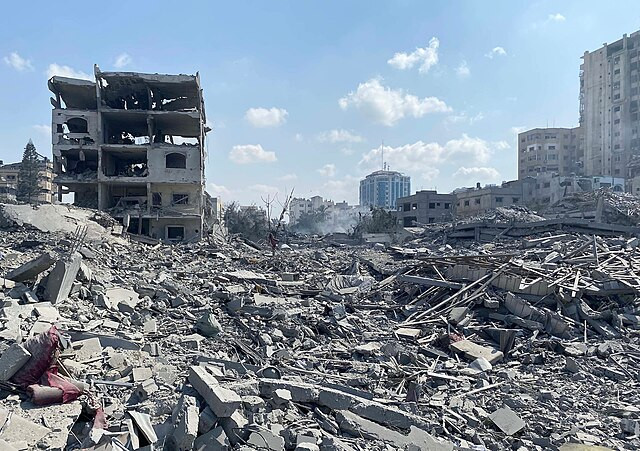In a development that underscores the volatility of the Israel-Hamas conflict, Israeli airstrikes on Gaza killed at least 82 people on Thursday, hours after a long-awaited ceasefire agreement was announced, as reported by Al Jazeera. According to Gaza's health ministry, the death toll includes 18 individuals killed in a single strike on a residential area near the Engineers Union Building in Gaza City.
The ceasefire deal, brokered by Qatar, Egypt, and the United States, aims to halt 15 months of relentless warfare. It includes a phased truce, humanitarian aid provisions, and the release of hostages held by Hamas in exchange for Palestinian prisoners detained in Israeli jails. While the agreement has been met with cautious optimism, its implementation will not begin until Sunday, leaving Gaza residents bracing for more violence in the interim.
Celebrations that briefly erupted across Gaza after the deal's announcement quickly gave way to renewed despair as Israeli warplanes continued to target urban centers. "For a couple of hours, people turned this area into a stage of celebration," said Al Jazeera's Hani Mahmoud.
"Just hours ago there was an atmosphere of joy and relief among residents here when the ceasefire announcement was made from Doha," Al Jazeera's Anas al-Sharif reported similar scenes, stating, "However, immediately after the announcement, Israeli warplanes extinguished that joy for the people - striking hospitals, shelters and homes with direct air strikes."
The agreement outlines a six-week ceasefire during which Israeli forces are to gradually withdraw from Gaza. The deal will also allow for the delivery of 600 truckloads of humanitarian aid per day, including food and fuel, to the besieged enclave. In return, Hamas will release 33 hostages, focusing on women, children, and elderly individuals during the first phase of the deal. Negotiations for a permanent truce and the release of remaining hostages are set to begin on the 16th day of the ceasefire.
The agreement faces resistance within Israel's ruling coalition. Finance Minister Bezalel Smotrich and other far-right officials have criticized the deal, arguing it compromises Israel's security by allowing the release of Palestinian prisoners, some of whom were convicted of deadly attacks. Despite this opposition, public opinion in Israel largely favors the deal, with many citizens prioritizing the safe return of hostages.
In Gaza, the ceasefire cannot come soon enough. "We lose homes every hour," said Mahmoud Abu Wardeh, a resident of Gaza City. "We demand that the truce be implemented immediately to prevent further suffering." The enclave has seen over 46,000 deaths and the displacement of most of its 2.3 million residents since the conflict began, according to local authorities.
Israeli Prime Minister Benjamin Netanyahu delayed a cabinet vote on the agreement, citing unresolved issues with Hamas over the terms of prisoner exchanges. "The Israeli cabinet will not convene until the mediators notify Israel that Hamas has accepted all elements of the agreement," Netanyahu's office said in a statement.
The White House downplayed concerns about the delay. Deputy National Security Adviser Jonathan Finer told CNN, "We fully expect the deal to be implemented as described by the president and by the mediators yesterday."




